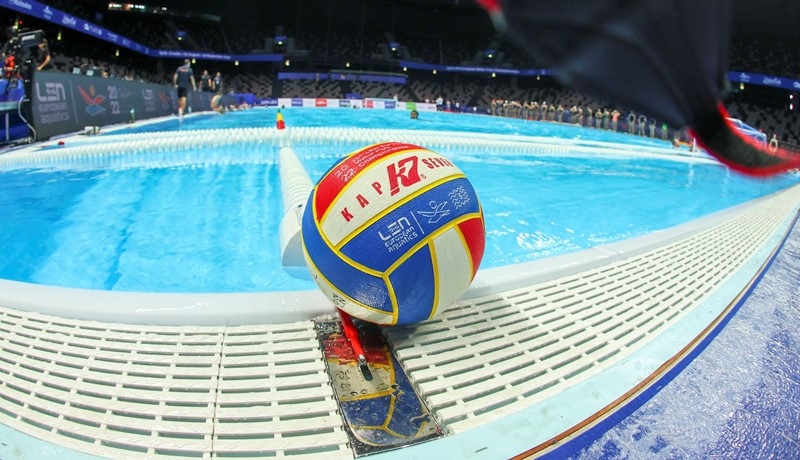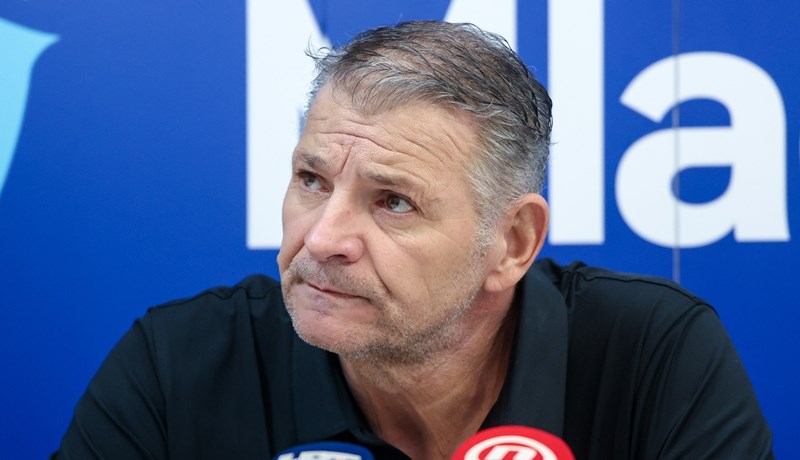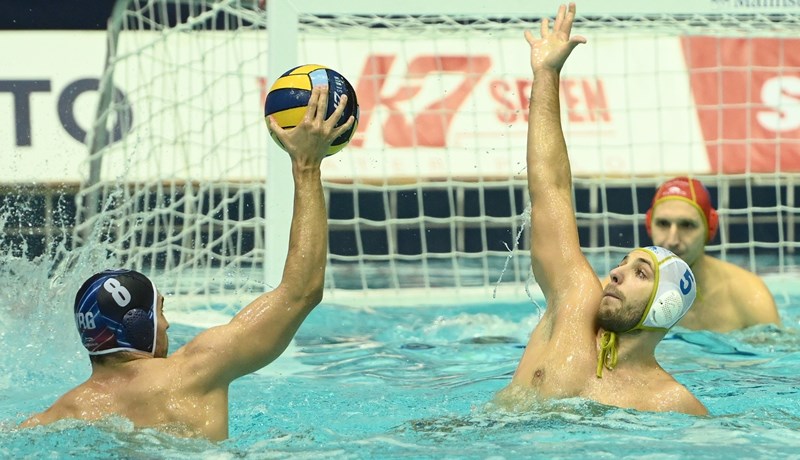Ratko Rudic: the man who has conquered all
Worldwide winner
By Russell McKinnon
FINA Press Commission Member
Like a climber who has conquered Everest, the stay at the top is brief. Croatian water polo head coach Ratko Rudic feels the cool winds around him despite winning a third FINA World Championships crown in three decades in Melbourne on April 1. “There is always pressure on the head coach as he is top of the pyramid. When on top of a mountain there are many winds, cold and blowing hard. It is hard to stay on top.”
Rudic has climbed his Everest many times and looks assured of “staying on top” for some time to  come. His magical touch with the coaching wand has seen him become a long-term survivor, albeit with a passport that sees him with a different nationality from time to time. From playing his way to a silver medal with Yugoslavia in 1980, to cresting the wave with three Olympic gold medals, three World Championship crowns, two World Cups and two European titles, Rudic has done it all. In fact, 18 medals at last count.
come. His magical touch with the coaching wand has seen him become a long-term survivor, albeit with a passport that sees him with a different nationality from time to time. From playing his way to a silver medal with Yugoslavia in 1980, to cresting the wave with three Olympic gold medals, three World Championship crowns, two World Cups and two European titles, Rudic has done it all. In fact, 18 medals at last count.
On that April 1 day better known as April Fools Day, there were many on hand who were foolish to believe that Rudic could not win the crown in Melbourne and complete another hat-trick. After all, Croatia had to beat reigning champion Serbia to get to the final before facing Olympic champion Hungary.
History tells us that Rudic succeeded and gained his third world title with three different countries — a record in itself. This was the arrival home for Rudic, the full circle having been turned. His earlier triumphs were with Yugoslavia in 1986 followed by a second crown with Italy in 1994. In 2007 it was with his beloved Croatia.
“From the first day of my coaching career I have always wanted to build a team to function with all players using their qualities — the functionality of the team. All players must participate in the game. I didn’t limit players. It was always the spirit of a team game.”
This gentle giant of the pool deck usually shows emotions with a shrug of the shoulders, a look to the heavens but never with a bellowing voice. Softly spoken, he gets his message across with facial expressions and gesticulations of the hands. And his message invariably reaches the recipient as his results attest.
Rudic revels in the coaching role. A role that is inevitably lonely. “Most of the time I am alone as my principal responsibility is the national team. You have collaborators and organisational staff and when you have good results you have a lot of friends around. No results and you can’t see many of the real people.”
Where did this urge to coach come from? “I was a good player in a good team. I didn’t realise as a player the result I wanted to have. As a player I had no gold medal from Olympic Games, World Championships or European Championships. I missed these results as a player. At the end of my career I was not satisfied as a player despite winning silver at the Olympics.”
His coaching outlook is far different from a player’s after his meteoric rise from coaching under Mr Orlich at the Partizan Club in Belgrade in 1981 to being appointed national junior coach in 1983 to taking over the Olympic team’s reins in 1984 with immediate success. “It is very different as a player and a coach. There is lower pressure on a player before a game. A coach has much more pressure and it is much more difficult. It is for 24 hours.
“Players relax and renew energies but for a coach there is no relax time. There is great pressure and responsibility. However, I like and love the sport and it is not hard to do (coaching),” Rudic said.
Coaches are results driven. “As national coaches we are working to reaching good results. For me, in particular, it is important. I came home to work with my home national team. There are so many results in my career — I must confirm my methodology.” And confirm it he did with a straight run through the World Championships, easily winning its group and then dispensing with the top order in confident fashion.
Croatia’s arrival at the top level was achieved with a team of equal-ability players. When it came to selecting the Media All Star team in Melbourne there were so many Croatians in contention and it was hard to select one from the line-up. “From the first day of my coaching career I have always wanted to build a team to function with all players using their qualities — the functionality of the team. All players must participate in the game. I didn’t limit players. It was always the spirit of a team game.”
As with the highs there have been lows and several darker moments cloud his career. “In 1975 I was accused of doping, which was a big mistake. It was really hard for me.” And then there was the blow-up in Sydney during the Olympic Games when he was coaching Italy. “I made a mistake and I had a year out (alluding to his one-year suspension for bringing the game into disrepute).”
The explosion came in a quarter-final match with Hungary in which allegations were allegedly made about the referees after players were excluded from the team bench and an appeal for a replay was eventually dismissed. “I accept what happened and I had a year out but I returned with new energy and had the respect of all people,” he said.
It was then that Rudic left the continent and his reign in Italy, turning his attention to United States  Water Polo. “I started with basic work with US Water Polo repairing the Olympic team with Project 2008. There were so many things to organise with age groups, US clubs and zones, premier league, bringing good European teams to the USA and sending young teams to Europe. “We didn’t expect big results but expect them at the end of the cycle. In four years we reached a higher level, finishing in third place in the World League.”
Water Polo. “I started with basic work with US Water Polo repairing the Olympic team with Project 2008. There were so many things to organise with age groups, US clubs and zones, premier league, bringing good European teams to the USA and sending young teams to Europe. “We didn’t expect big results but expect them at the end of the cycle. In four years we reached a higher level, finishing in third place in the World League.”
His return to Croatia saw immediate results for the country with the team going close to a medal at the Montreal World Championships before losing out to Greece and finishing fourth. The same result came in Budapest for last year’s World Cup before the breakthrough victory in Melbourne.
“It is very different as a player and a coach. There is lower pressure on a player before a game. A coach has much more pressure and it is much more difficult. It is for 24 hours."
Rudic is proud of his achievement. “For me it was a third World Championship and with three different nations. It was recognition of my coaching philosophy, everything I have been working for all these years. I have worked on the basic things, which is most important.
“It is something for me, maybe one of the most important victories. Very special for me.”
Rudic would not be drawn on who the best players were under his charge. “There are so many good players in the four national teams I have coached. If I mention one then 10 would be offended. They are all my friends.” However, it must be said that he has had control of some of the best players to grace the game — Yugoslavians, Italians, Americans and Croatians.
What he could be drawn on was the current state of the game. “It was a better World Championships (in Melbourne) with good games. We didn’t have too many problems with the referees. We are still adapting and looking for the best way to interpret the rules.” Rudic likes the concept of a 30-second possession clock, the five-metre shot on foul and no corners after blocking. “It is very important now as there is less time to organise the attack. I think it was a very good indication for the Olympic Games next year. At the Olympic Games you will see the full interpretation of the rules.”
For all his fame and historical success, Rudic remains a man of the game — a gentle, knowledgeable and successful coach whose records, forever expanding, may never be equalled. His stay at the top of the mountain is assured for many years to come
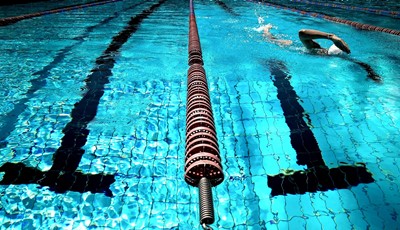
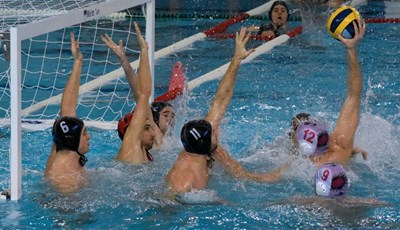
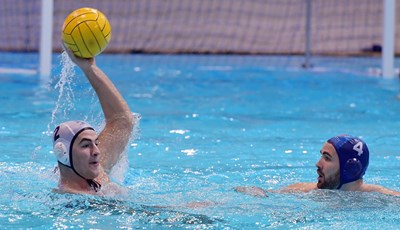
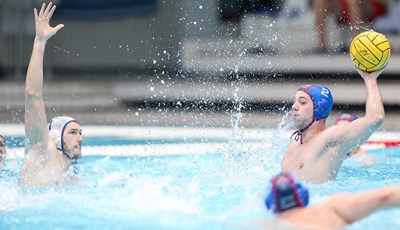
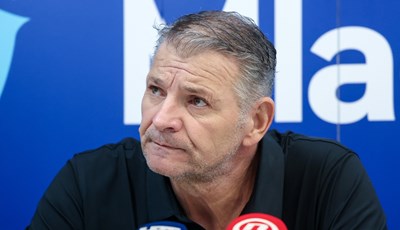
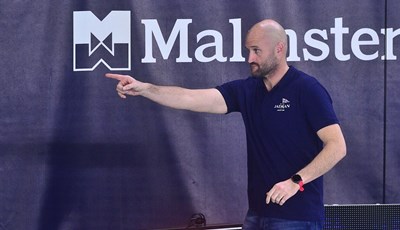
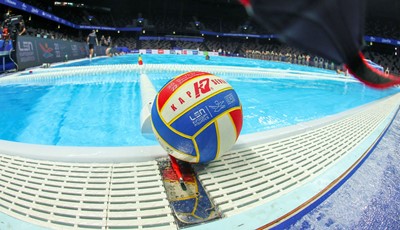
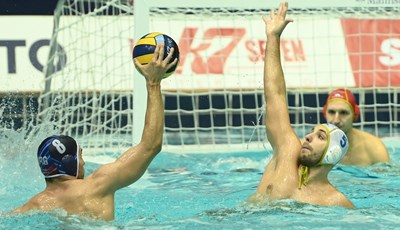
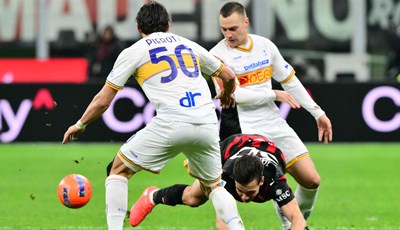

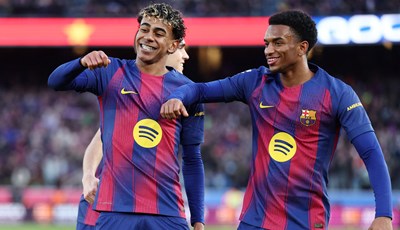
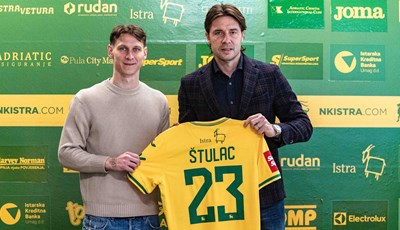
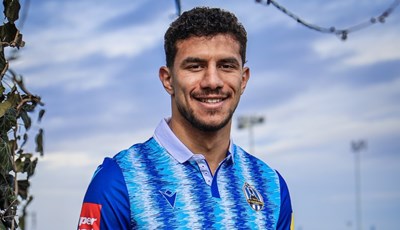
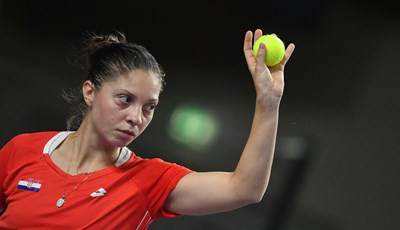
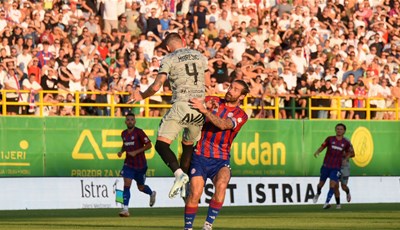
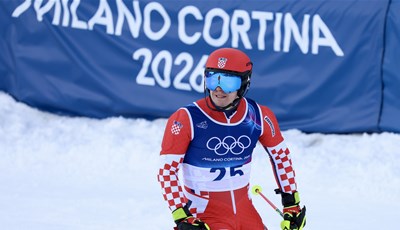




 come. His magical touch with the coaching wand has seen him become a long-term survivor, albeit with a passport that sees him with a different nationality from time to time. From playing his way to a silver medal with Yugoslavia in 1980, to cresting the wave with three Olympic gold medals, three World Championship crowns, two World Cups and two European titles, Rudic has done it all. In fact, 18 medals at last count.
come. His magical touch with the coaching wand has seen him become a long-term survivor, albeit with a passport that sees him with a different nationality from time to time. From playing his way to a silver medal with Yugoslavia in 1980, to cresting the wave with three Olympic gold medals, three World Championship crowns, two World Cups and two European titles, Rudic has done it all. In fact, 18 medals at last count. Water Polo. “I started with basic work with US Water Polo repairing the Olympic team with Project 2008. There were so many things to organise with age groups, US clubs and zones, premier league, bringing good European teams to the USA and sending young teams to Europe. “We didn’t expect big results but expect them at the end of the cycle. In four years we reached a higher level, finishing in third place in the World League.”
Water Polo. “I started with basic work with US Water Polo repairing the Olympic team with Project 2008. There were so many things to organise with age groups, US clubs and zones, premier league, bringing good European teams to the USA and sending young teams to Europe. “We didn’t expect big results but expect them at the end of the cycle. In four years we reached a higher level, finishing in third place in the World League.”